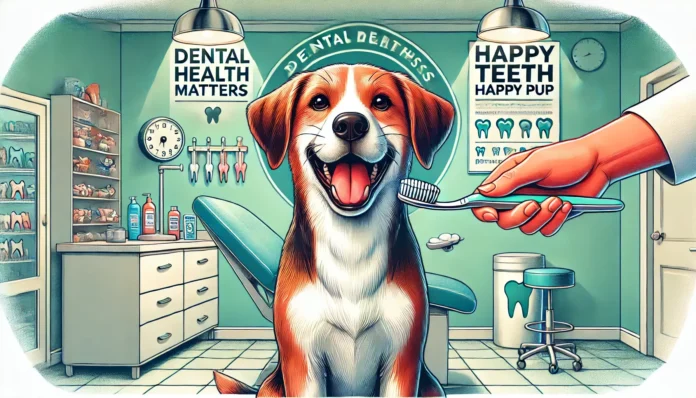How Often Do Dogs Need Dental Cleaning? Oral Health Care Health is an important yet often neglected part of your dog’s overall well-being. While regular dental cleanings do contribute to the sparkle of your smile, they are also critical to preventing periodontal disease, which can cause serious health complications if not treated. Proper dental care also plays an important role in your dog’s comfort, length of life, and quality of life.
Dog health at the park is crucial. Find out how to protect your pet from the Derry Dog Park Health Issue.
Let’s get into how often dogs need dental cleaning. Most vets recommend having professional dental cleaning done once per year, but the frequency can vary depending on your pet’s age, breed, and oral health. You can ensure that your furry friend enjoys a healthier, happier life by staying on top of their dental care needs.
In this guide, we’ll take a closer look at the importance of routine dental cleanings, how to create the right schedule for your dog, and some at-home practices you can implement to keep their mouths healthy between visits.
From recognizing the signs of dental problems to preventative dental care, this guide will cover everything you need to know to keep your pup’s teeth and gums healthy! We’ll take a look at how to provide optimal dental care for your pooch!
How Often Do Dogs Typically Need Dental Cleaning?
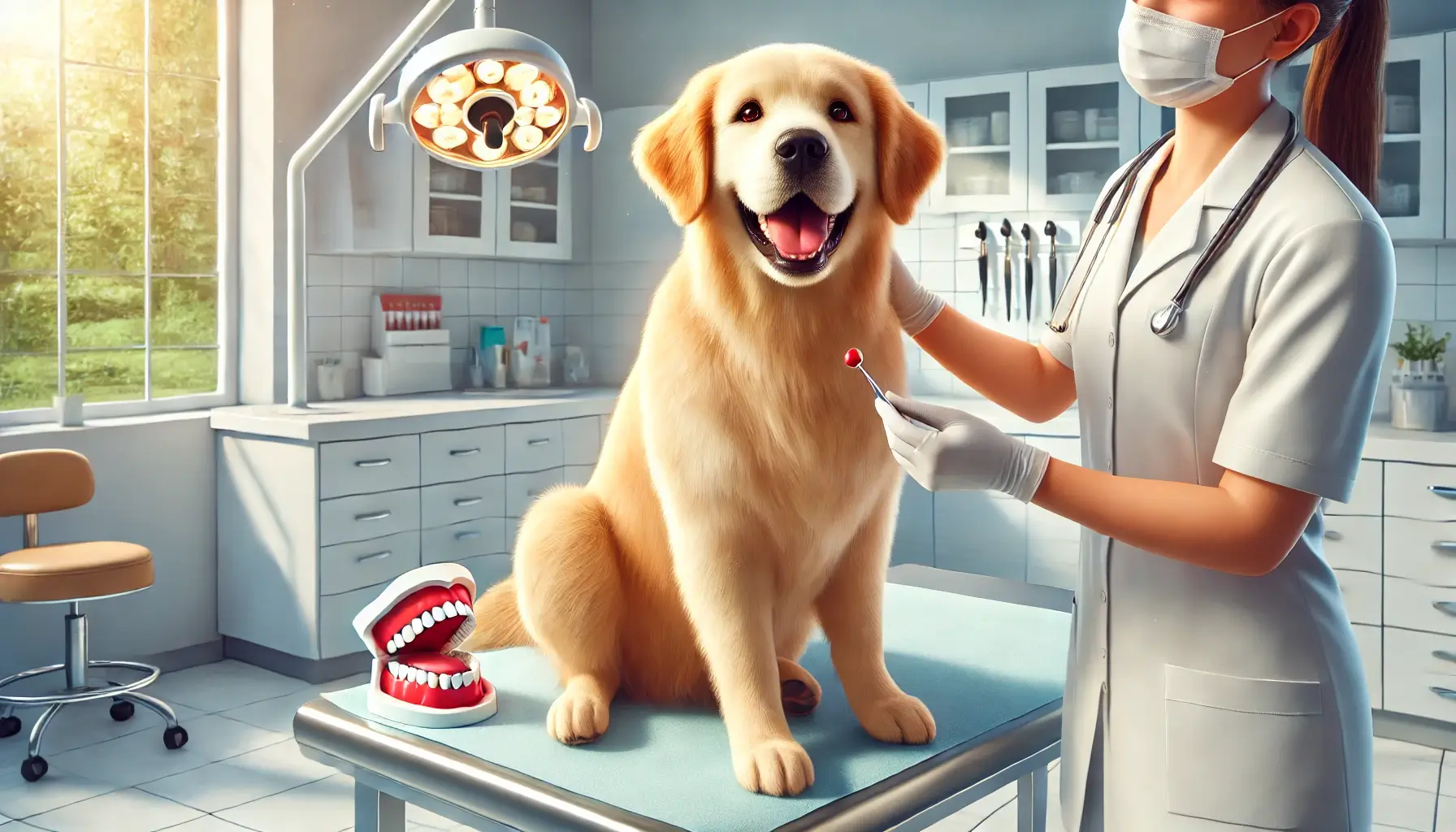
Most types of dogs require a standard dental cleaning by a qualified professional to maintain proper oral health, frequency varies based on the different factors. Regularly removing plaque and tartar ensures the health of your dog’s teeth and gums and lowers the risk of serious health problems.
See the benefits of dog dental cleaning before and after treatment.
General Recommendations
Dental cleaning is recommended by your veterinarian at least annually for most dogs. This annual clean is generally enough to rectify common problems such as a tartar build up, or slightly inflamed gums.
- High-need breeds or dental problems: Some dogs (like small breeds or dogs susceptible to dental disease) may need cleanings every 6-12 months. Breeds that tend to have periodontal disease, like Dachshunds, Chihuahuas, and Greyhounds, may require additional attention.
- Second of all, dogs with existing dental concerns: If your dog has a history of gum disease, tooth decay, or excessive tartar buildup, they may well need to have their teeth cleaned more regularly to maintain optimal oral health.
Factors Affecting Cleaning Frequency
Several factors influence how often your dog should have their teeth professionally cleaned:
- Breed and size: Smaller dogs are more prone to dental issues due to overcrowded teeth, while some larger breeds are naturally less susceptible.
- Age and overall health: Older dogs and those with weaker immune systems may require more frequent cleanings to prevent complications.
- Prone to tartar buildup: Dogs that develop tartar quickly or show early signs of gum disease may need closer monitoring and additional cleanings.
Consulting your veterinarian is the best way to determine the ideal cleaning frequency for your dog’s specific needs. Personalized care ensures their teeth and gums stay healthy, enhancing their overall well-being.
Factors That Determine a Dog’s Dental Cleaning Needs
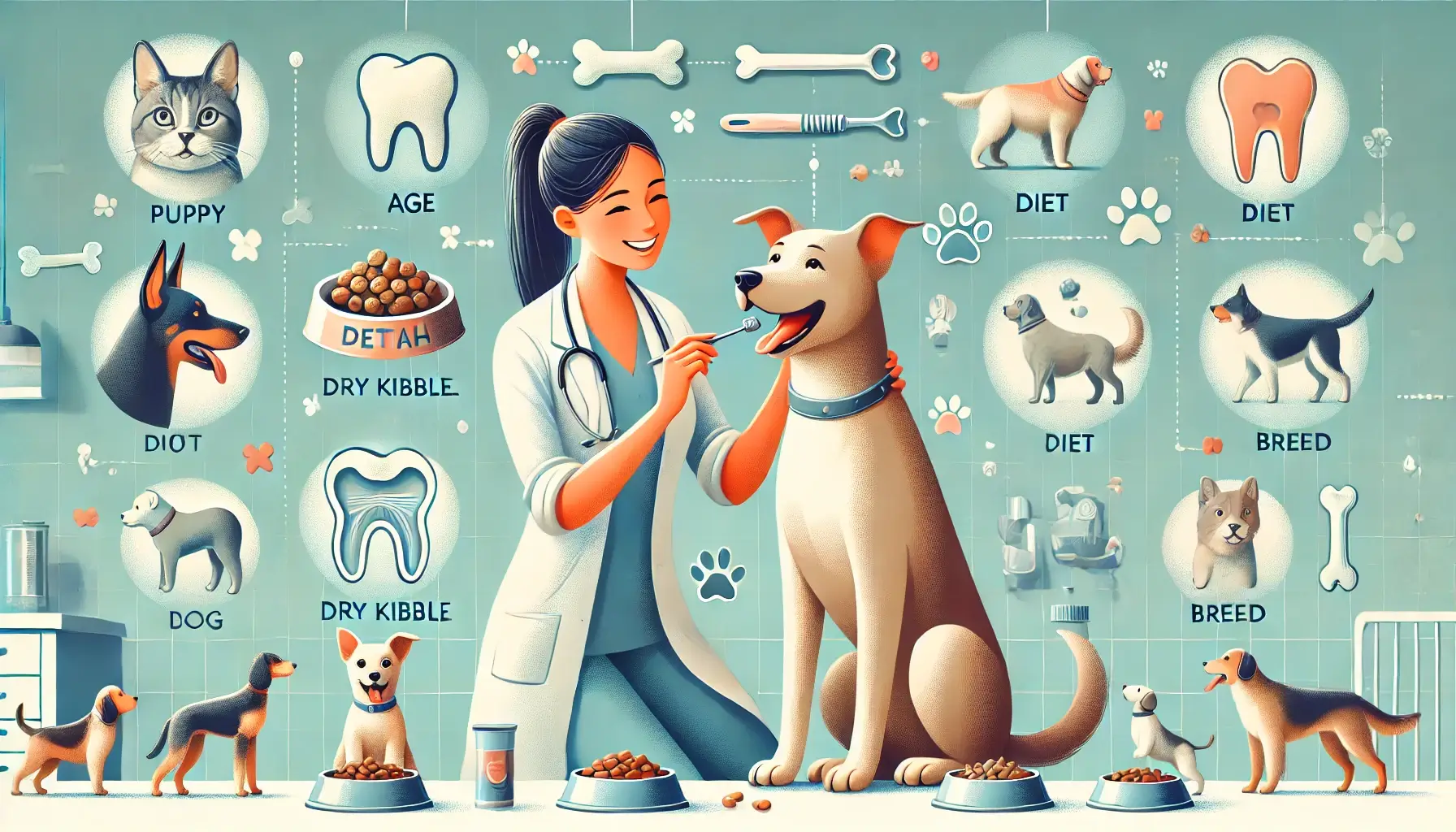
When it comes to how often dogs require dental cleanings, there’s no one-size-fits-all answer. How much dental care a dog needs depends mostly on the breed, age, and dental care habits of the dog. Knowing all these enables you to come up with a dental care program that suits your pup best.
Worried about your Chinook’s well-being? Learn about common health issues here: Chinook Dog Health Issues
Breed-Specific Risks
Some breeds are genetically predisposed to having dental issues, so regular cleanings are especially important.
- Small breeds: Small dogs like Chihuahuas, Dachshunds, and Yorkies have smaller mouths, which can lead to overcrowding and tartar buildup, leading to food diseases.
- Large breeds: Big dog breeds (Golden Retrievers, Labradors, etc.) are less likely to develop issues with their dental health, but it can still happen in the same way that it does for smaller breeds, due to poor diet or hygiene.
Age and Life Stage
Your dog’s age is a considerable factor in their dental health and cleaning requirements.
- Puppies: Although puppies do not require professional cleanings, instilling dental care habits early in life will help them develop good oral health as they age.
- Senior dogs: Older dogs are at a greater risk of developing gum disease, tooth decay, and other dental issues that come with age. They also tend to need professional cleanings more often, as much as every other month, to keep their mouths healthy and free from discomfort.
Oral Hygiene Habits
How well you care for your dog’s teeth at home makes a huge difference in how much professional help they need.
- Routine brushing: Dogs who get regular at-home brushing with dog-safe toothpaste will usually need fewer professional cleanings.
- Lack of care: Dogs that do not have a dental care routine at home will develop tartar, gum disease, and other oral health conditions that require more frequent cleanings.
Take these factors into consideration when discussing your options with your veterinarian so you can establish a dental care plan specific to your pup. Preventive care allows you to keep your dog’s teeth and gums in good shape and decreases the number of times your pet needs a cleaning.
Signs Your Dog Needs a Dental Cleaning
Regular dental cleanings are essential to keeping your dog’s mouth healthy, but how do you know when it’s time to call the vet?
The symptoms you need to monitor include oral and digestive symptoms since the prevention of dog dental diseases and the treatment of canine teeth cleaning will depend on them, for example, if you take care of your dog when your dog needs professional dental care, you must pay attention to physical symptoms (such as bad odor) Behavioral changes and persistent bad breath.
Physical Symptoms
Physical Symptoms Early Warning Signs That Your Dog’s Teeth and Gums Need Attention
- Tartar buildup: Yellow or brown tartar on your dog’s teeth is a clear indication that they need to receive a professional cleaning. If not treated, tartar can cause gum disease and decay of teeth.
- Swollen or bleeding gums: Redness, swelling or bleeding gum tissue is a typical signal of gingivitis, or more advanced periodontal disease that requires the attention of a veterinarian.
Behavioral Changes
Alterations in your dog’s eating or chewing behavior may indicate dental pain.
- Increased reluctance to chew: If your dog is not chewing hard foods or seems hesitant to eat at all, the issue may be dental pain.
- Pawing at the mouth or drooling: If your dog is drooling excessively or pawing at their face, they might be experiencing oral pain or sensitivity.
Persistent Bad Breath
And while you may smell a mild odor, persistent bad breath (halitosis) that doesn’t improve with regular brushing or dental chews is a red flag. Bad breath is also caused by the build-up of bacteria, which needs to be professionally cleaned.
Knowing the Signs early allows you to help your dog get the dental care he/she needs to remain healthy and comfortable. Routine veterinary visits are critical to catch and manage dental issues before they become serious.
H2: Benefits of Regular Dental Cleanings for Dogs
Dental cleanings are an important part of your dog’s health care routine. In addition to keeping their teeth sparkling clean, these cleanings provide numerous benefits that enhance their quality of life and prevent serious health issues. That’s why making dental cleanings a priority is one of the best things you can do for your four-legged companion.
Preventing Periodontal Disease
Preventing periodontal disease One of the main benefits of routine dental cleanings is the prevention of periodontal disease.
- Risks are reduced: Regular professional cleanings help remove plaque and tartar, drastically reducing the risk of gum disease, tooth loss, and painful oral infections.
- Promotes oral health: Healthy gums and teeth mean your dog can eat, play, and chew comfortably throughout their life.
Improving Overall Health
Good oral hygiene is about more than your dog’s mouth—it benefits her whole body!
- Prevents bacteria from entering your system: Unaddressed dental disease can allow harmful bacteria to enter the bloodstream, where it can go on to affect major organs of the body, including the heart, liver, and kidneys.
- Increases energy and appetite: After your dog undergoes oral pain relief, they can enjoy eating their meals and their everyday life activities without pain, resulting in better health.
Long-Term Cost Savings
Preventative cleanings can save you money over time.
- Lower-cost treatment: Preventive dental cleaning costs less than advanced dental disease treatment, which often needs antibiotics, extraction, or surgery.
- Avoids major procedures: Addressing the issue early avoids the need for more expensive emergency treatment and helps ensure your dog remains with you.
When you commit to regular dental cleanings, you are giving your dog a gift of health and comfort and preventing preventable complications. Regular cleanings prevent your pup from a life of osculating pain with a healthier smile!
Find out if dog annual vaccinations can be done during dental cleaning for convenience.
At-Home Care to Reduce the Need for Frequent Cleanings
Professional dental cleanings are critical for your dog’s oral health, but at-home care can go a long way toward reducing the frequency of these cleanings. Creating a proactive dental routine helps not only to reduce tartar accumulation but also helps maintain your dog’s teeth and gums in between vet check-ups.
Daily Brushing Routine
Brushing once a day is best to avoid plaque buildup and keep your mouth healthy.
- Use dog-specific products: Human toothpaste can be harmful to dogs; always opt for toothpaste and toothbrushes specifically made for dogs. They’re specially designed to cleanse teeth and taste good for your pup.
- Gradually introduce brushing: Start by getting your dog familiar with the taste of the toothpaste and feel of the brush. Increase the brushing time in stages until they are happy with the process.
Dental Chews and Toys
Chews and toys are a wonderful complement to brushing and help keep your dog’s mouth clean.
- Veterinarian-approved chews: Dental chews are formulated to scrape away tartar and massage gums, making them a tasty and functional part of your dog’s regimen.
- Chew toys: Choose chew toys that also clean teeth while engaging gums. They can help combat plaque in a fun, engaging manner.
Dental Diets and Water Additives
Some specific diets and supplements support your dog’s oral health easily.
- Dental option: Made for your pet’s teeth, aiding in plaque and tartar buildup.
- Water additives: Add to your dog’s water bowl to freshen your breath and prevent bacteria that cause plaque from growing.
Pairing these at-home preventative options with routine veterinary cleanings will keep your dog’s mouth healthy, and lessen the amount of professional cleanings needed throughout their life, leading to a happier, healthier pooch.
FAQs About Dog Dental Cleaning Frequency
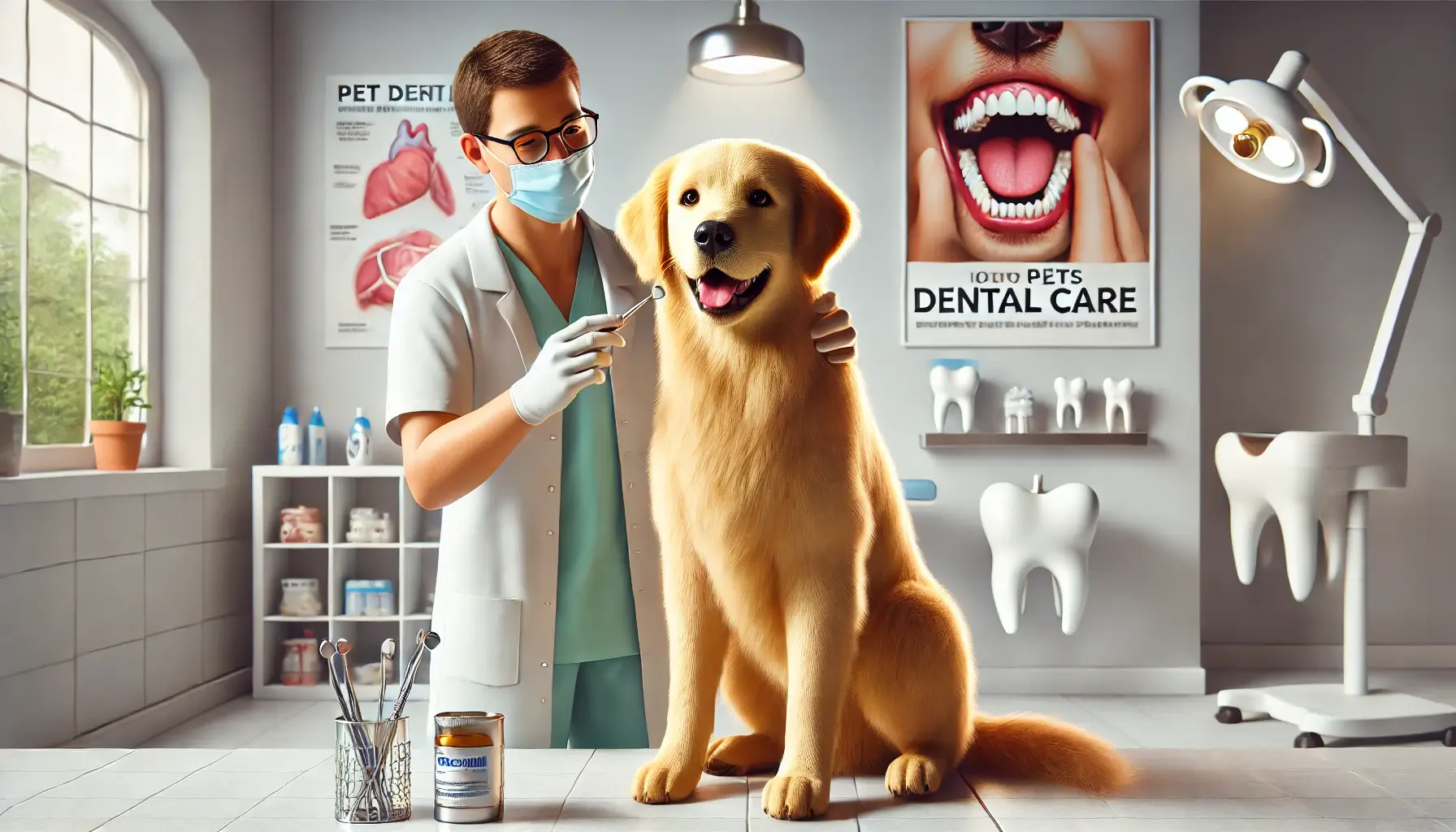
When it comes to keeping your dog’s teeth clean, many questions can arise about how often dogs need to have their teeth cleaned and if dog dental cleanings are really necessary. To help you make the best choices for your furry friend’s dental health, here are answers to some frequently asked questions.
How frequently do dogs require dental cleaning by a veterinarian?
Generally, dogs need to see a vet for a dental clean once a year. But certain breeds more prone to dental disease, or some dogs who develop other types of dental problems, may require cleanings every 6-12 months, according to their veterinarian’s guidelines.
Will I be able to skip dental cleanings if I brush my dog’s teeth regularly?
No. You still need professional cleaning. Routine brushing gets plaque off the tooth surface, but a professional cleaning clears away tartar buildup and plaque down below the gum line, which a brush just can’t reach.
What are the dangers of not getting your teeth cleaned frequently?
Neglecting to regularly clean dogs’ teeth exposes them to a greater risk of gum disease, tooth loss, and oral infection. These conditions can cause system-wide health problems affecting essential organs such as the heart and kidneys.
Should small dogs get dental cleanings more frequently?
Yes, small breeds are even more susceptible to tartar buildup and periodontal disease, because of their tiny mouths and crowded teeth. They tend to need more regular cleanings.
Is dental cleaning safe for geriatric dogs?
Yes, senior dogs usually need professional dental cleanings (if pre-anesthetic evaluations are done properly, they are entirely safe). Frequent cleanings can also help them live a healthier life by avoiding any oral pain and/or infections.
Regular dental care contributes to your dog’s overall health and well-being, regardless of their age or size. Always consult with your veterinarian before changing your pet’s diet.
Genetics and Oral Anatomy
Genetics or oral structure of specific breeds or individual dogs can predispose them to dental problems.
- Crowded or misaligned teeth: Dogs with crowded or overlapping teeth — like the glamorous blondes Chihuahuas and Yorkies — are more susceptible to plaque and tartar accumulation. This makes them more prone to periodontal disease, which requires more frequent cleanings.
- Breed-specific risks: Genetically, certain breeds such as Greyhounds and Dachshunds are at higher risk for dental disease and will need closer monitoring and care.
Dietary Habits
How often you have to clean your dog’s teeth can also vary, however, that can be heavily influenced by what your dog eats.
- Wet food diets: Wet food diets tend to increase plaque accumulation on dogs’ teeth compared to dry kibble diets because the abrasive action provided by dry food to clean teeth is lost with wet food.
- Chewing habits: Dogs that do not chew regularly — using dental chews or toys — may also be candidates for more frequent professional cleanings.
Existing Health Conditions
Some health problems can put dogs at greater risk for dental diseases.
- Diabetes: Diabetic dogs tend to be more susceptible to gum disease due to an altered immune response and blood sugar.
- Immune system problems: Dogs with compromised immune systems aren’t as capable of fighting off infections, so routine dental care is vital to make sure complications don’t arise.
Knowing this can help you create a dental care plan that’s right for your dog! Always check with your vet on how often your pet should be cleaned.
Preparing for Your Dog’s Dental Cleaning Appointment
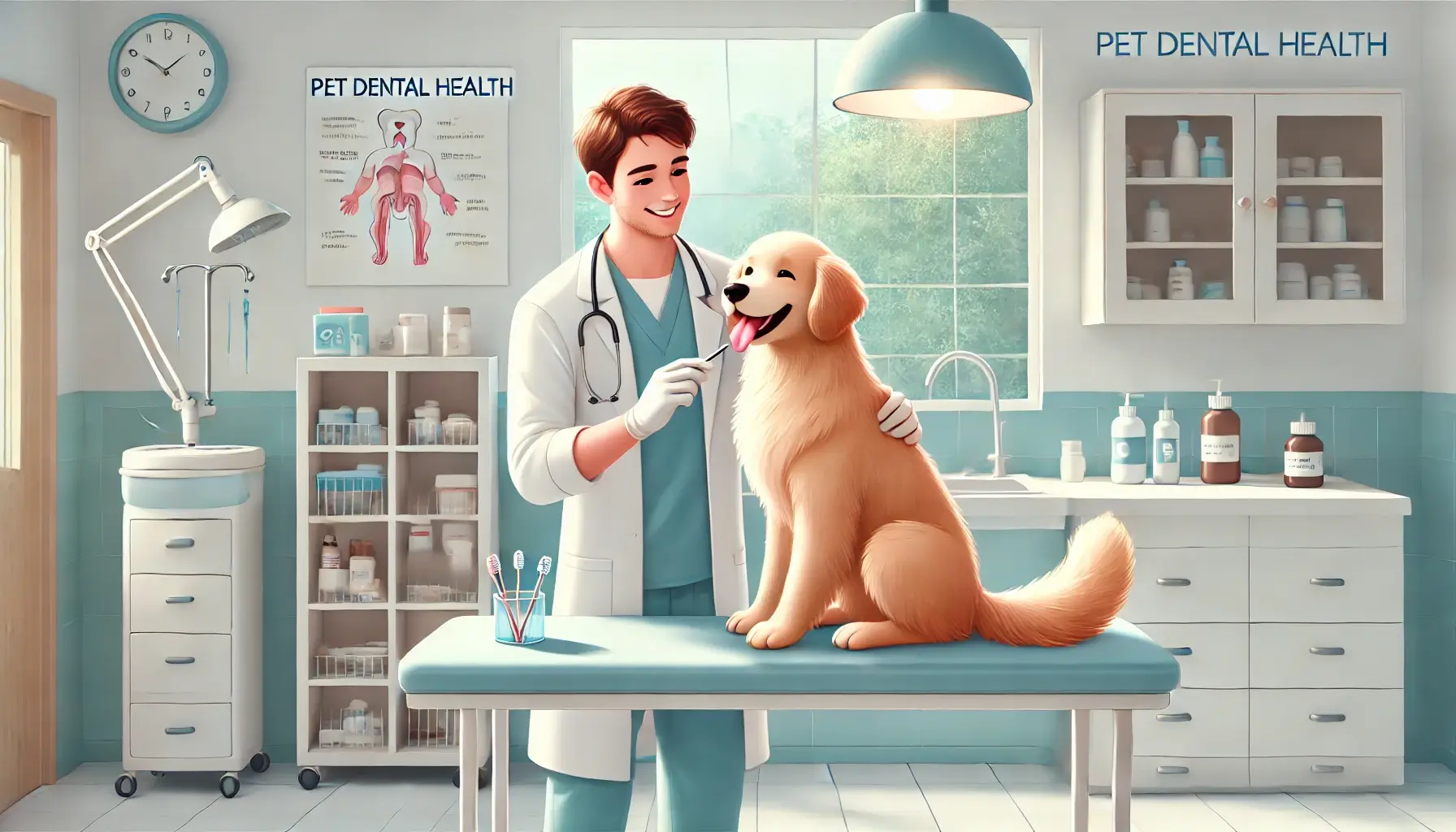
The professional dental is an integral part of your dog’s oral health maintenance. A little prior preparation and aftercare at home go a long way in making the experience easy for you as well as your pet. Here’s what you should know to make the process as low-stress as can be.
Pre-Procedure Guidelines
Fast and Follow Instructions Your Veterinarian Gives Before the Dental Cleaning One downside to a dental cleaning is that your furry friend is usually required to fast before the procedure.
- You may be instructed to fast your pet. Most veterinarians will ask you to have your dog fast for a few hours (it can vary, but it is usually less than 12 hours) before the cleaning to avoid complications during anesthesia. The fasting timeline will need to be confirmed in advance.
- Talk about medications and health issues: Tell your vet about any medications your dog is taking or any underlying health issues, such as heart conditions or allergies. This will help the veterinary team develop a safe and effective procedure.
Post-Procedure Care
Post clean your dog may be a little bit sensitive or sore (which needs some extra attention).
- Give soft food: For a few days, eat soft, bland foods to make eating easier as their gums heal. Shredded chicken or rice are great options.
- Watch for pain: Look for signs of discomfort, swelling, or unusual behavior. If you notice anything ominous, call your vet.
- Plan follow-ups: Regular check-ups to monitor your dog’s oral health and possible issues will work best! Your veterinarian can also suggest dental products that help keep teeth clean at home.
With some advance planning and post-cleaning support, you can help your dog have a safe and effective dental cleaning experience that contributes to their long-term health and happiness.
Understand how long a dog dental cleaning takes and what to expect during the procedure.
Conclusion: How Often Does Your Dog Need Dental Cleaning?
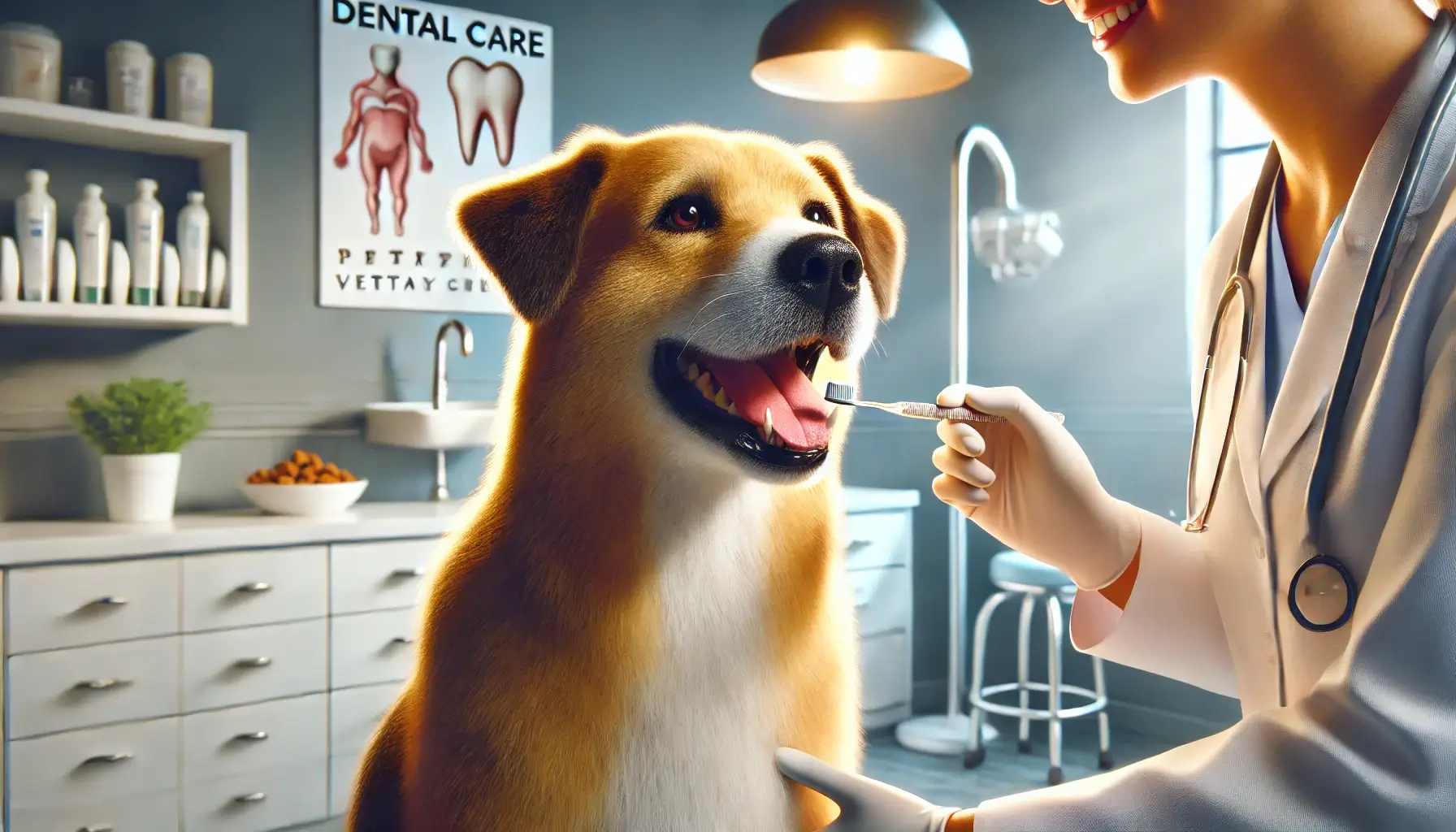
Most dogs need a professional dental cleaning at least once a year. However, the breed type, age, eating habits, and care regimen at home may inform an appropriate cleaning schedule. Dogs that are classified as high-risk breeds, older dogs, or dogs that already have dental issues may require more frequent cleaning to keep their teeth healthy.
Regular dental cleanings do more than protect the dog’s teeth — they help prevent painful gum disease, lower the risk for systemic health problems, and improve your dog’s quality of life. By keeping your pet proactive, you can help ensure they lead a happy, healthy life with a smile to match.
Check with your veterinarian to establish the proper cleaning schedule for your dog. They can make personalized recommendations depending on your pet’s unique needs, as well as help you develop a well-rounded at-home dental care routine. A simple at-home maintenance solution for your dog’s oral health to help between professional cleanings is brushing dental chews, and dental diets.
The time to invest in your dog’s dental health is now – it pays off toward a brighter tomorrow! A little routine maintenance goes a long way, and with regular cleanings, coupled with at-home care, you can ensure your furry friend enjoys every minute of a long, happy, pain-free life.
Popular Article
Dental Health in Dogs Guidelines
Dental disease dog teeth cleaning before and after
How long do dog dental cleanings take
What to Feed Dog After Dental Cleaning
Can dog annual vaccinations be done during dental cleaning
Can dogs get dental implants
Clindamycin dosage for dog’s dental
Dog Heat Cycle Calculator
chinook dog health issues


